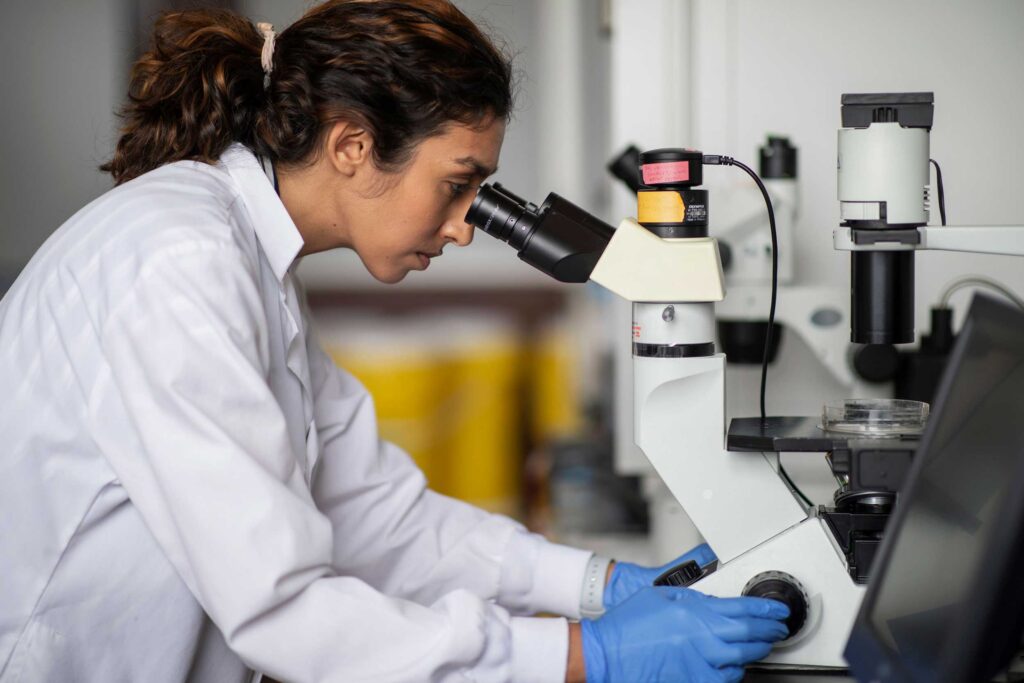Strengthening Canada’s biomanufacturing ecosystem and pandemic preparedness

In March 2023, U of T became the home for the Canadian Hub for Health Intelligence and Innovation in Infectious Diseases (HI3) after securing a $2 million award from the Canada Biomedical Research Fund (CBRF). HI3 is a multi-disciplinary and multi-sector coalition of over 90 partners that will work collaboratively to bolster a robust domestic biomanufacturing pipeline of life-saving vaccines and therapeutics targeting existing and emerging health threats.
The award was part of the CBRF Stage 1 competition, with U of T leading one of five national hubs whose mandate is to increase pandemic readiness and biomanufacturing capacity across Canada and endorse research, infrastructure and talent training programs for Stage 2 funding of up to $575 million.
According to Leah Cowen, U of T’s Vice-President, Research, and Innovation, “By bringing together an unprecedented number of partners from universities, hospitals, industry and other fields, the hub is poised to expand and invigorate the innovation-to-product pipeline and protect the health of all people living in Canada.”
Indeed, HI3 leverages U of T’s experience in and capacity to support large-scale, high-impact interdisciplinary research. Led by the ISI Office, and in close collaboration with several ISIs — the Emerging and Pandemic Infections Consortium (EPIC), the Acceleration Consortium, the Centre for Research Applications in Fluid Technologies (CRAFT), the Institute for Pandemics (IfP), the Data Sciences Institute (DSI) and Medicine by Design — U of T’s CBRF Stage 1 proposal secured the commitment of diverse partners, including seven Ontario universities, six research hospitals and 25 industry partners.
Co-leading the hub are Jen Gommerman, a professor and Chair of U of T’s Department of Immunology, and Scott Gray-Owen, a professor in U of T’s Department of Molecular Genetics and Director of EPIC and the Toronto High Containment Facility.
In May 2024, Stage 2 results of the integrated CBRF and the Biosciences Research Infrastructure Fund (BRIF) competition were announced. HI3 programs received $72 million in federal funding to run four programs, including BioHubNet, an immersive talent development program. Molly Shoichet, a professor at U of T’s Institute of Biomedical Engineering and Scientific Director of PRiME Next-Generation Precision Medicine (PRiME), will co-lead BioHubNet with Gilbert Walker, a professor at U of T’s Department of Chemistry, and Darius Rackus, a professor at Toronto Metropolitan University’s Department of Chemistry & Biology.
BioHubNet was awarded $18.9 million from the Stage 2 HI3 win. Over the next four years, the program will focus on addressing the severe shortage of industry-ready highly qualified personnel in the biomanufacturing sector by providing trainees with hands-on learning experiences in industry and academic settings, entrepreneurial training and access to micro-credential courses.